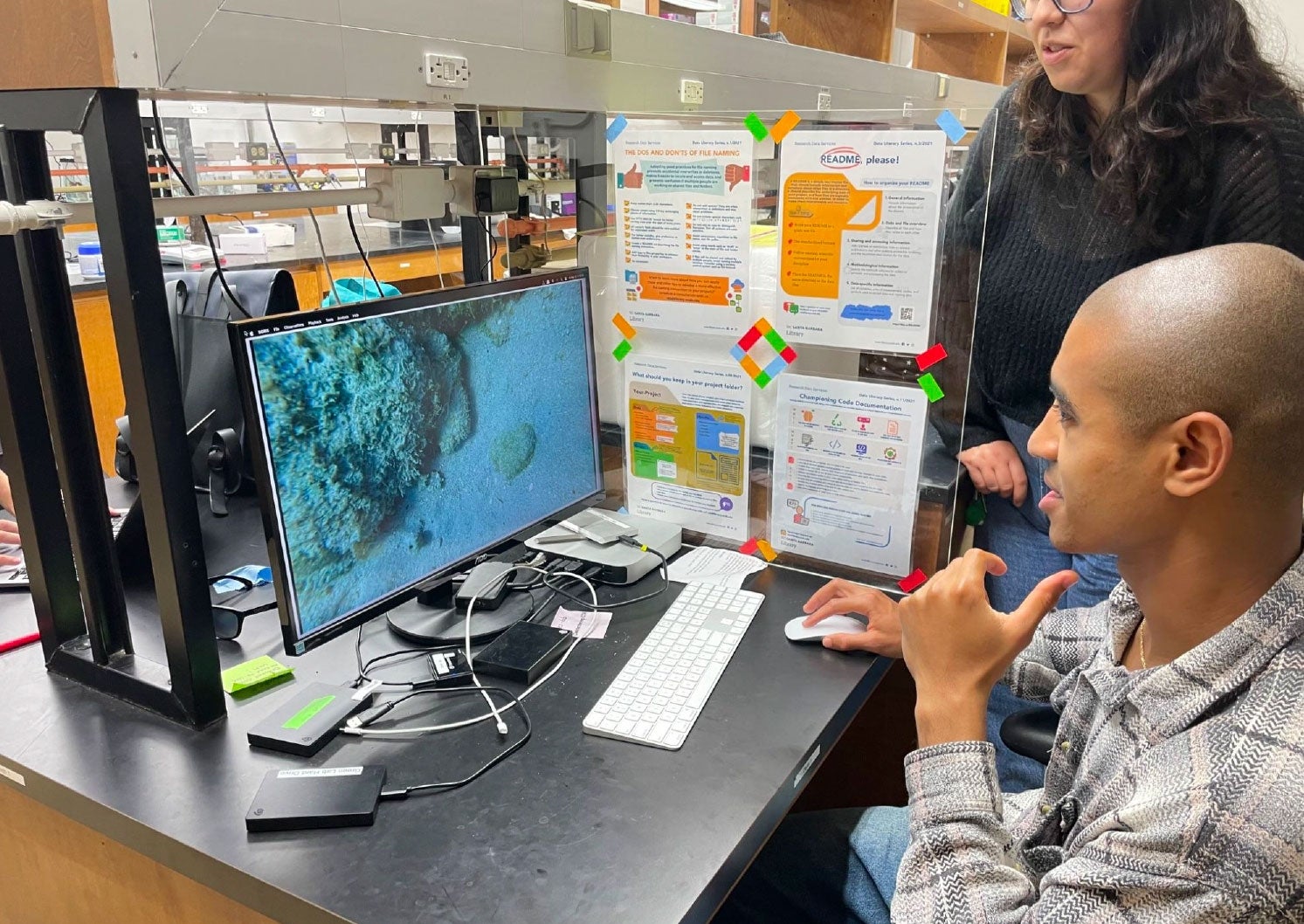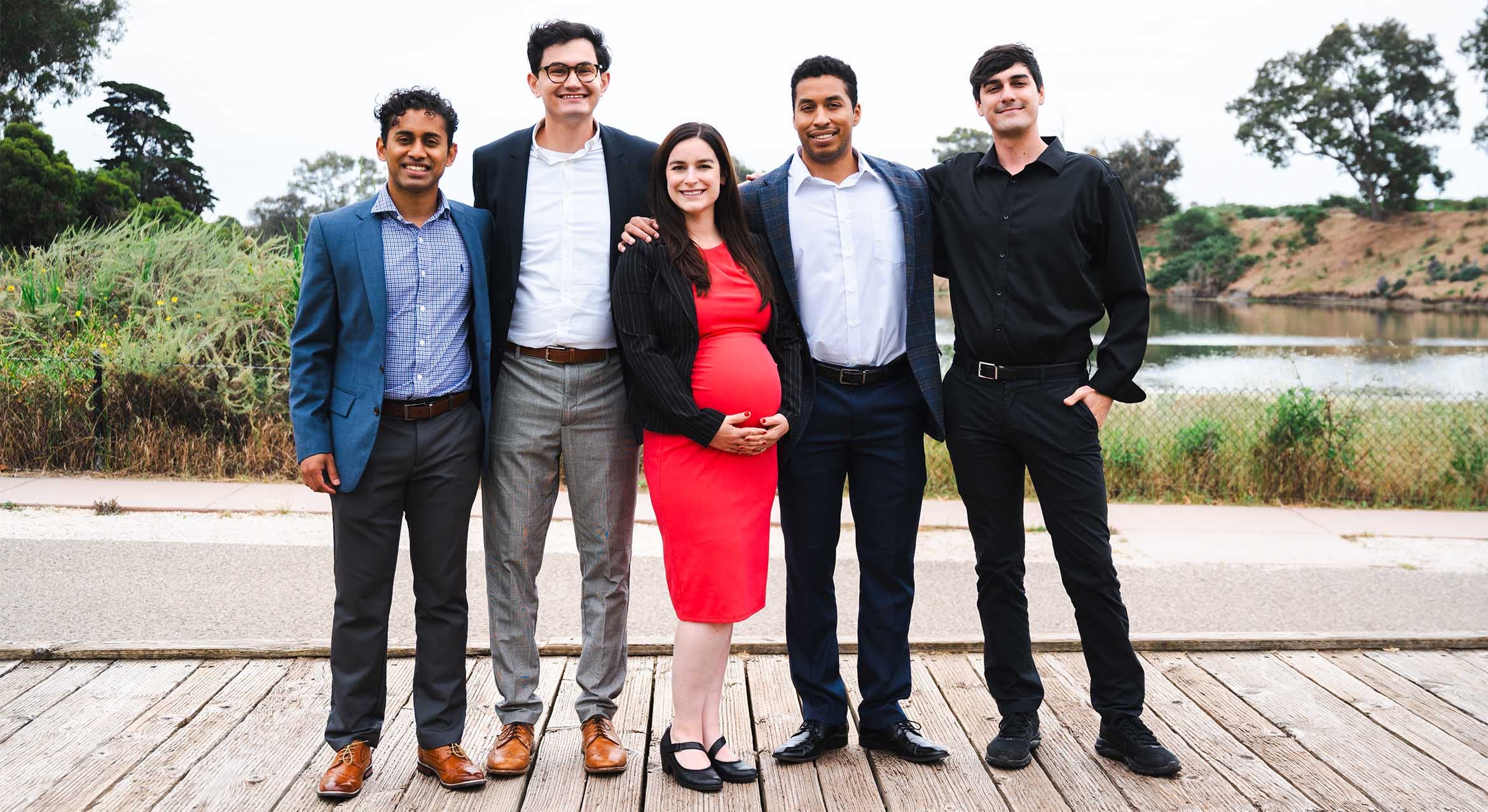Library’s new consultation service targets campus research labs

New requirements from funding agencies and publishers to improve the reproducibility of scientific results, and to ensure that data and code products of grant-funded research are “fair, accessible, interoperable and reusable (FAIR),” have sparked an open science revolution. While the benefits of open science are widely recognized, the burden of implementing its principles has been left to researchers, and too often is unfunded. Research libraries and scientific communities have developed resources to assist individual faculty, but historically little support has been provided to help translate general guidance into actionable practices at the collaborative lab level, where much research takes place.
To fill this gap, UCSB Library’s Research Data Services (RDS) department has launched a consultation service to help UCSB researchers make their science more open and reproducible. The service, “Designing a Reproducible and Collaborative Research Lab,” combines group workshops, self-paced learning and personalized coaching with a focus on collaborative coding, data management, developing scripted analytical workflows and preserving scientific products
“Our goal is to help make reproducibility at the center of the way labs conduct their research and not an afterthought that happens when a project ends or under a specific request from a publisher or funder,” said Julien Brun, the library’s earth and environmental sciences research facilitator, who leads the new service. “We also aim to demonstrate that if you can reproduce your own work, you can iterate more quickly and therefore be more efficient in the long run.”
A recent pilot run included Eleanor Caves, an assistant professor of ecology, evolution and marine biology, and her Caves Lab. They work with large amounts of digital data, including behavioral study videos of certain species of cleaner shrimp. An ever-growing local library of this data serves as the starting point for multiple projects and types of analyses.
The library’s RDS team worked with the Caves Lab in five sessions over eight months, helping the group map out an overall workflow and management strategy.
“I so value that these consultations involved the entire lab, not just the PI“because it helps spread the burden, crowdsource solutions, and ensure a sustainable pool of knowledge for moving forward,” said Caves. “Participating in these consultations has provided a really solid foundation for my lab moving forward as we try to ensure we use best practices with our code, data, and products.”
There is no one-size-fits-all solution when it comes to data management, making consultation and custom best practices critical.
“We do not pretend to have a solution for every group,” said RDS Director Greg Janée. “Rather, we see ourselves as catalyzing discussions on data and code management topics because groups know their data best. But since this is the focus of our jobs, we have the time and resources to research their technical needs and potential solutions for them, with the result that they can keep their focus on the science.”



